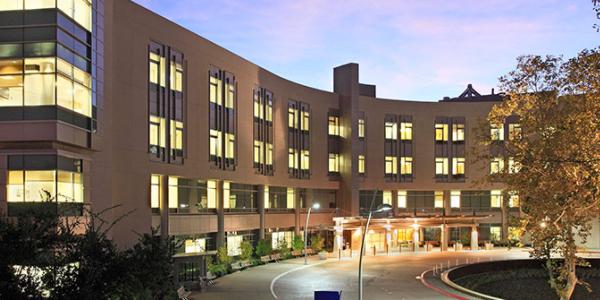
Mountain View, CA - November 1, 2010 - Physicians at El Camino Hospital are starting a medical trial called REACT, which they hope may give doctors a new and cost-effective tool for early diagnosis of lung cancer, the deadliest of the common cancers.
REACT, a collaboration between the hospital's Cancer Center and its Genomic Medicine Institute, will combine the use of Respiragene, a new, genetically based test that identifies smokers at the highest risk of lung cancer, and low-dose CT (computed tomography) scans. It aims to improve the likelihood of identifying patients with lung cancers before physical symptoms emerge.
"Most patients with lung cancer are diagnosed too late for effective treatment, and so far we don't have a reliable, universally accepted screening test for it," said principal investigator Dr. Elwyn Cabebe, who is affiliated with El Camino Hospital and Valley Medical Oncology Consultants. "The study will look at whether this test can be used to reliably identify smokers and former smokers at highest risk of lung cancer and define who would benefit most from follow-up with low-dose CT scanning. If so, it may mean better detection for early-stage cancer in a high-risk population." Although other studies have shown that low-dose CT scans can detect lung cancer in its early and potentially curable stages, scans also find non-cancerous nodules in the lungs of many smokers. The high number of false positives, the risks associated with subsequent follow-up procedures, and the high cost of regular CT screening for large groups has limited the wider adoption of CT screening for lung cancer, despite its early detection promise.
Lung cancer kills 10 to 15 percent of long-term smokers and is the country's leading cancer killer. The American Cancer Society estimates that 157,300 Americans will die of lung cancer in 2010 and 222,520 Americans will be diagnosed with it. But only 15.2 percent of those diagnosed live for five years after lung cancer is identified, and half die within one year of diagnosis.
The trial will study 200 smokers and ex-smokers aged 50 or older who have smoked the equivalent of a pack a day for 20 years or more and have no lung cancer symptoms, which include a persistent cough, chest pain or weight loss. They will be tested for their predisposition to lung cancer using the Respiragene test, and then all will receive a low-dose chest CT scan. All patients will be followed for up to three years with appropriate additional scans, as well as treatment as needed.
"One of the dilemmas we face with lung cancer is that almost always, by the time we find it, the chances of treating it effectively are minimal. If we could develop a more cost-effective diagnostic tool, we could start to change the odds in favor of the patient," said Shyamali Singhal, M.D., Director of El Camino Hospital's Cancer Center. "It's exciting to think that by combining personalized medicine--the utilization of unique family and genetic traits to personally tailor management and care--we might improve our ability to predict, prevent, diagnose and treat lung cancer."
All smokers enrolled in the trial will be required to undergo counseling to help them quit smoking. The trial will also look at the impact of the Respiragene test on success rates for quitting smoking.
The test gives smokers a personalized estimate of their own lung cancer risk, using their DNA and three non-genetic risk factors for lung cancer--age, chronic obstructive pulmonary disease or emphysema, and close family history of lung cancer.
"We're excited to be working with El Camino Hospital on this trial," said Dr Robert Young, chief scientific officer of Synergenz Bioscience Ltd., a company formed to commercialize an 8-year research program conducted at the University of Auckland in New Zealand. "Their team has grasped the potential for a non-invasive risk assessment tool such as Respiragene to help direct preventative care and resources towards patients most likely to benefit from them."
If you are interested in being considered for the trial, please contact the Clinical Research Coordinator at El Camino Hospital at 650-988-7623.